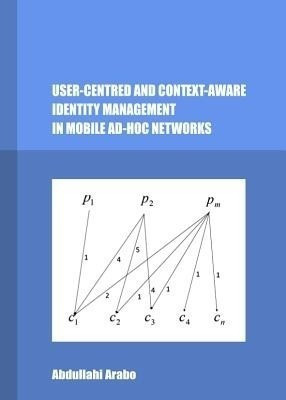User-Centred and Context-Aware Identity Management in Mobile Ad-Hoc Networks(English, Hardcover, Arabo Abdullahi)
Quick Overview
Product Price Comparison
The emergent notion of ubiquitous computing makes it possible for mobile devices to communicate and provide services via networks connected in an ad-hoc manner. These have resulted in the proliferation of wireless technologies such as Mobile Ad-hoc Networks (MANets), which offer attractive solutions for services that need flexible setup as well as dynamic and low cost wireless connectivity. However, the growing trend outlined above also raises serious concerns over Identity Management (IM) due to a dramatic increase in identity theft. The problem is even greater in service-oriented architectures, where partial identities are sprinkled across many services and users have no control over such identities. This book provides a review of some issues of contextual computing, its implications and usage within pervasive environments. The book will also introduce the concept of Security of Systems-of-Systems (SoS) Composition and its security implications within the domain of ubiquitous computing and Crisis Management in large scale disaster recovery situations and scenarios. To tackle the above problems, the book will emphasise the fact that it is essential to allow users to have full control over their own identities in MANet environments. So far, the development of such identity control remains a significant challenge for the research community. The main focus of this book is on the area of identity management in MANets and emergency situations by using context-awareness and user-centricity together with its security issues and implications. Context-awareness allows us to make use of partial identities as a way of user identity protection and node identification. User-centricity is aimed at putting users in control of their partial identities, policies and rules for privacy protection. These principles help us to propose an innovative, easy-to-use identity management framework for MANets. The framework makes the flow of partial identities explicit; gives users control over such identities based on their respective situations and contexts, and creates a balance between convenience and privacy. The book presents our proposed framework, its development and lab results/evaluations, and outlines possible future work to improve the framework. This book will be of great interest and benefit to undergraduate students undertaking computer science modules on security and ubiquitous computing and postgraduate students studying the security of large scale systems of systems composition, as well as those doing their projects in those areas. The book will also accommodate the needs of early researchers and DPhil/PhD or MPhil students exploring the concept of security in ubiquitous environments, while additionally being of great interest to lecturers teaching related modules and industrial researchers.


